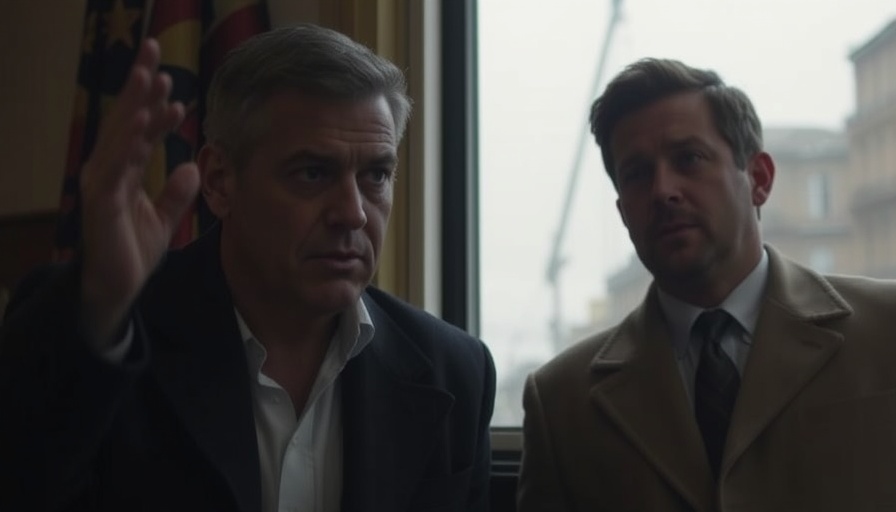
Sting Faces Legal Turnover Amid Accusations of Lost Royalties
The legal landscape of the music industry often intertwines creativity with complex business relationships. In a recent twist, renowned musician Sting is facing a lawsuit from his former bandmates, Andy Summers and Stewart Copeland of The Police. The lawsuit, filed in London's High Court, centers on allegations of unpaid royalties related to their iconic song 'Every Breath You Take.' The claim asserts that both Summers and Copeland did not receive proper songwriting credits for their contributions to the 1983 hit, which has garnered lasting acclaim and financial success over the decades.
The Backstory: Understanding the Roots of the Dispute
The Police emerged in the late 70s, quickly transforming the music scene with their unique blend of rock, reggae, and punk. Their fifth and final album, 'Synchronicity,' features 'Every Breath You Take,' a global sensation that dominated charts and left an indelible mark on pop culture. But despite the commercial triumph, the relationship between the band members has been tumultuous, fraught with creative clashes and personal conflicts, as recounted by Stewart Copeland himself. This lawsuit adds another chapter to the already storied history of The Police, unveiling deeper issues of trust and recognition in their collaborative efforts.
The Impact of 'Every Breath You Take': A Timeless Classic
'Every Breath You Take' was not just a chart-topping hit; it has become one of the most recognizable songs worldwide, often misinterpreted as a romantic ballad rather than a song about obsession. The immense success of the track, which includes its feature in P Diddy and Faith Evans' 'I’ll Be Missing You,' raises questions about wealth distribution within collaborative artistic frameworks. How should credits and royalties be divided among co-writers who contributed to a song's success? This ongoing dispute highlights the complexities of musical partnerships and the potential fallout from artistic differences.
Legal Ramifications and Personal Reflections
While Sting's spokesperson has downplayed the lawsuit’s connection to 'Every Breath You Take,' the legal case exemplifies the often-overlooked reality of financial and creative compensation in the arts. Sting himself, now 73, has been an influential figure in music, having sold his entire songwriting catalogue to Universal for an estimated $300 million. Such financial maneuvering has become common in the music industry, seen as a means to secure income in an ever-evolving digital landscape.
Counterpoints: The Artist’s Perspective on Collaboration
As an artist, Sting has expressed his inclination towards solo work, stating that he finds greater freedom in creating without the constraints of band dynamics. This sentiment raises pertinent questions about the nature of collaboration in music. Are the sacrifices worth the potential rewards? In the case of The Police, the song 'Roxanne,' and tracks like 'Every Little Thing She Does is Magic,' showcase the strengths of teamwork despite underlying tensions—a duality that many musicians encounter.
Looking Ahead: What This Means for the Future of Collaboration in Music
As the case unfolds, it offers a glimpse into the future of songwriting collaborations, especially regarding how artists may negotiate credits and royalties in the digital age. With platforms like TikTok emerging in the music promotion space, artists are finding new ways to connect with audiences. This raises significant issues about legacy and acknowledgment in songwriting, especially for those who may feel marginalized in historic narratives.
What Fans Can Learn: Navigating Cultural Icons and Their Stories
The ongoing situation with Sting and The Police serves not only as a legal case but as a cultural lesson. It invites audiences to reflect on the legacy of their favorite artists beyond just their music. Fans and newcomers alike can appreciate how the harmonious blend of sounds often stems from a patchwork of stories, relationships, and sometimes disputes over credit—an essential part of the rich tapestry of musical history.
In conclusion, as digital nomads and music enthusiasts traverse the globe, they carry the stories of artists like Sting with them. An understanding of the challenges and triumphs faced by these artists can deepen one’s appreciation for their work and the music industry as a whole. As this fascinating legal drama unfolds, one thing is certain: the world of music will continue to be both an expansive creative landscape and a battleground for recognition.
 Add Row
Add Row  Add
Add 




Write A Comment